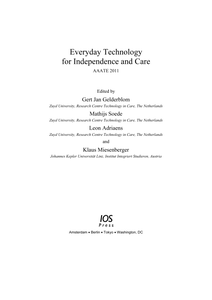This thesis describes an Action Research (AR) project aimed at the implementation of Evidence Based Practice in a mental health nursing setting in the Netherlands. The main research question addressed in this thesis is: In what way is Action Research with an empowering appropriate to implement Evidence Based Practice in a mental health nursing setting in the Netherlands and what is the effect of this implementation on the care experienced by the client, the nursing interventions and the context in this setting compared to a comparative setting? To answer this main research question, the following questions derived from it were addressed: What is Evidence Based Practice? What is known about implementing evidence-based practice in nursing through Action Research? Which factors have to be dealt with in a mental health nursing setting, so the implementation of EBP with AR with an empowering intent will be more successful? Which factors have to be dealt with in a mental health nursing setting, so the implementation of EBP with AR with an empowering intent will be successful? How is EBP implemented through AR with an empowering intent and what are the outcomes for the use of evidence, the context and the facilitation in the setting? What is the effect of the implementation of EBP in mental health nursing using AR with an empowering intent on the care experienced by the client, the nursing interventions and the context compared to a comparison setting? The first two questions were answered by a search of the literature while the remaining questions were answered during the AR study conducted in two mental health organisations in the Netherlands.
DOCUMENT

This study explores the evaluation of research pathways of self-management health innovations from discovery to implementation in the context of practice-based research. The aim is to understand how a new process model for evaluating practice-based research provides insights into the implementation success of innovations. Data were collected from nine research projects in the Netherlands. Through document analysis and semi-structured interviews, we analysed how the projects start, evolve, and contribute to the healthcare practice. Building on previous research evaluation approaches to monitor knowledge utilization, we developed a Research Pathway Model. The model’s process character enables us to include and evaluate the incremental work required throughout the lifespan of an innovation project and it helps to foreground that innovation continues during implementation in real-life settings. We found that in each research project, pathways are followed that include activities to explore a new solution, deliver a prototype and contribute to theory. Only three projects explored the solution in real life and included activities to create the necessary changes for the solutions to be adopted. These three projects were associated with successful implementation. The exploration of the solution in a real-life environment in which users test a prototype in their own context seems to be a necessary research activity for the successful implementation of self-management health innovations.
MULTIFILE

Transitions in health care and the increasing pace at which technological innovations emerge, have led to new professional approach at the crossroads of health care and technology. In order to adequately deal with these transition processes and challenges before future professionals access the labour market, Fontys University of Applied Sciences is in a transition to combining education with interdisciplinary practice-based research. Fontys UAS is launching a new centre of expertise in Health Care and Technology, which is a new approach compared to existing educational structures. The new centre is presented as an example of how new initiatives in the field of education and research at the intersection of care and technology can be shaped.
DOCUMENT

In order to achieve much-needed transitions in energy and health, systemic changes are required that are firmly based on the principles of regard for others and community values, while at the same time operating in market conditions. Social entrepreneurship and community entrepreneurship (SCE) hold the promise to catalyze such transitions, as they combine bottom-up social initiatives with a focus on financially viable business models. SCE requires a facilitating ecosystem in order to be able to fully realize its potential. As yet it is unclear in which way the entrepreneurial ecosystem for social and community entrepreneurship facilitates or hinders the flourishing and scaling of such entrepreneurship. It is also unclear how exactly entrepreneurs and stakeholders influence their ecosystem to become more facilitative. This research programme addresses these questions. Conceptually it integrates entrepreneurial ecosystem frameworks with upcoming theories on civic wealth creation, collaborative governance, participative learning and collective action frameworks.This multidisciplinary research project capitalizes on a unique consortium: the Dutch City Deal ‘Impact Ondernemen’. In this collaborative research, we enhance and expand current data collection efforts and adopt a living-lab setting centered on nine local and regional cases for collaborative learning through experimenting with innovative financial and business models. We develop meaningful, participatory design and evaluation methods and state-of-the-art digital tools to increase the effectiveness of impact measurement and management. Educational modules for professionals are developed to boost the abovementioned transition. The project’s learnings on mechanisms and processes can easily be adapted and translated to a broad range of impact areas.